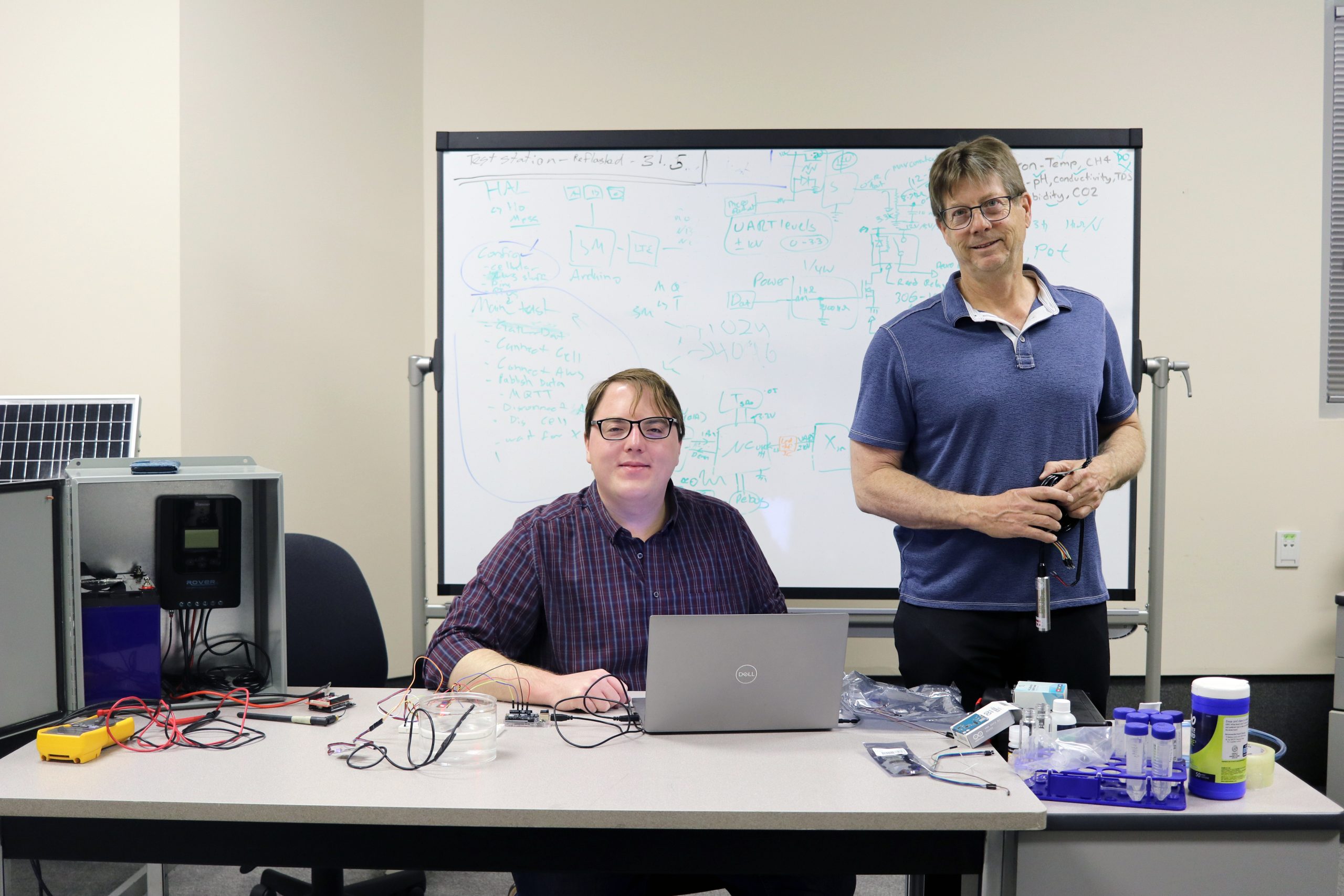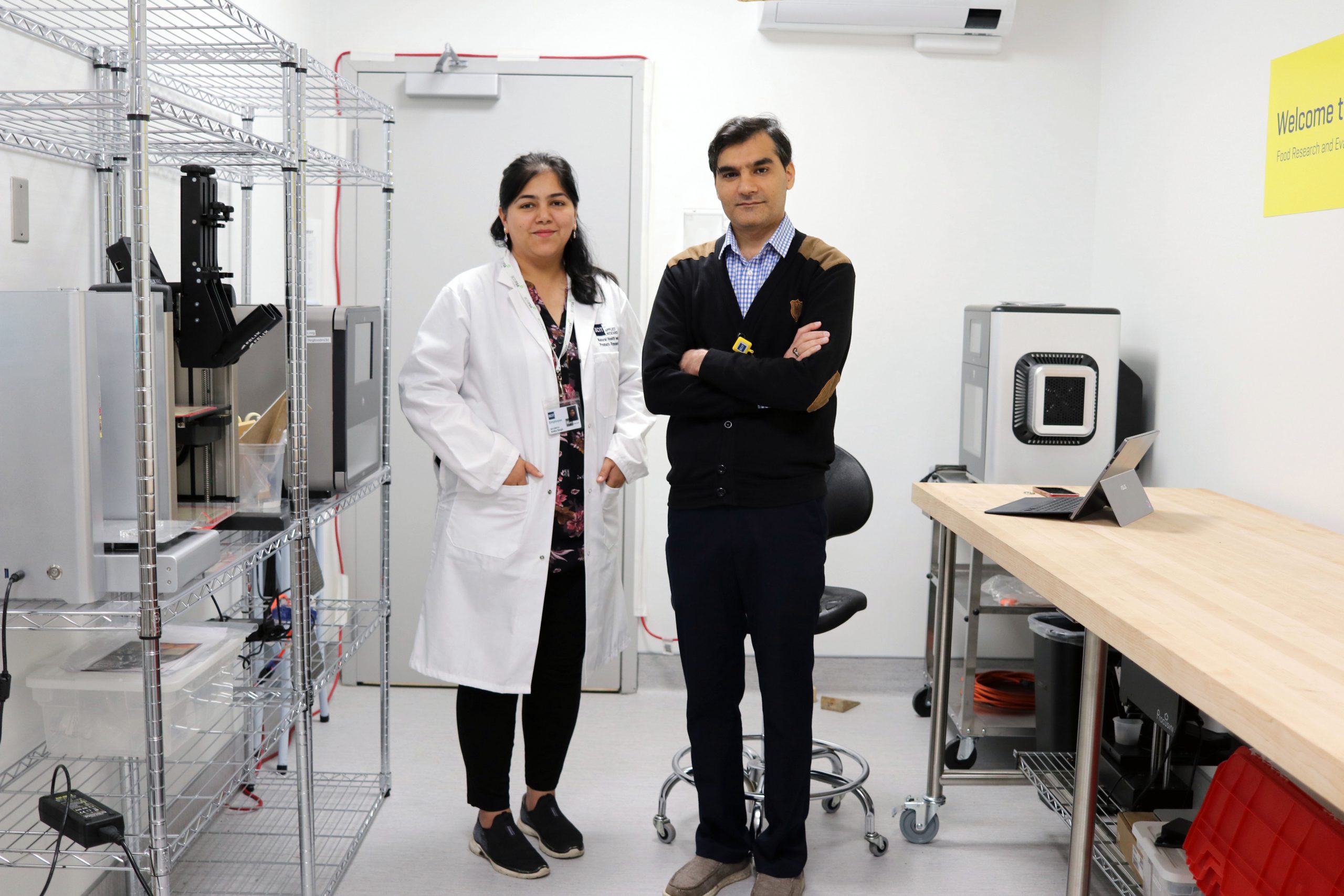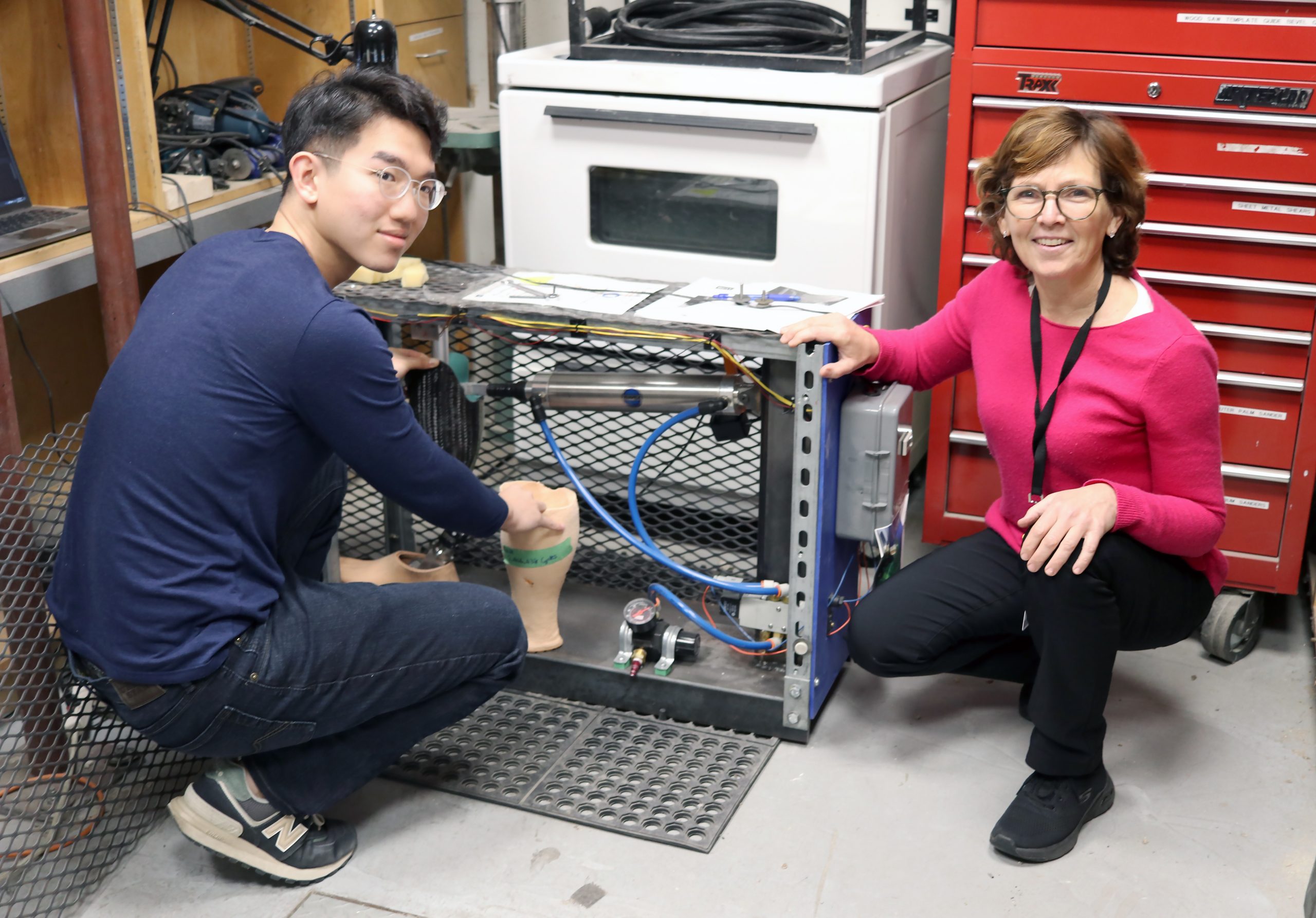Two Biomedical Engineering students who sought out MAKE+ research group for co-op and work experience had the opportunity to contribute to an innovative prosthetics project with the War Amps of Canada and local company Barber Prosthetics Clinic.
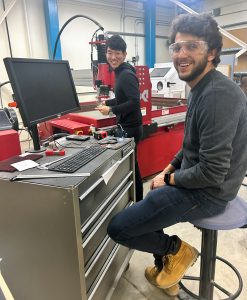
Biomedical engineering students Jedidiah Chiusa and Eduardo Lejtman contributed to the project Using 3D Printing Technology to Enhance Cover Options for Individuals with Lower Extremity Prostheses.
Traditional manufacturing methods for prosthetic covers often result in products that lack customization and aesthetic appeal, limiting users’ satisfaction and comfort. Visually appealing prosthetics offer significant psychological and social benefits for amputees, enhancing self-esteem and confidence, and promoting a positive self-image. Barber Prosthetics Clinic saw a need for a new prosthetic cover that addressed these issues and reached out to the team at MAKE+ to work with them on this initiative because of the group’s experience with R&D of new tech and 3D printing capabilities.
“We’ve really enjoyed working with Jedidiah and Edi on this project.” says Johanne Mattie, Project Leader, MAKE+. “It’s great that they have been involved in all aspects of the research, including better understanding stakeholder perspectives, developing, and building concept prototypes, and establishing testing protocols. The students have been really engaged in the work and it’s nice seeing them apply their skills to help us move this project forward.”
Using 3D design software, Jedidiah’s role on the project was to enhance the prosthetic cover’s appearance and functionality.
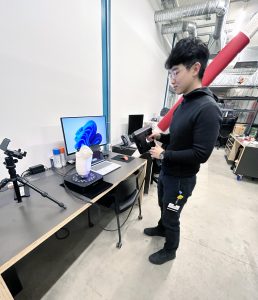
“Working with Johanne at MAKE+ and engaging with real clients has been instrumental in refining my skills and acquiring practical experience,” explains Jedidiah, a fourth-year biomedical engineering student from the UBC School of Biomedical Engineering. “The opportunity to work on authentic projects, solve tangible problems, and make a meaningful impact was pivotal in my decision to choose MAKE+ for my co-op.” Jeddidiah continued working part-time with MAKE+ on this project in the Spring and Summer of 2024 while completing his final year at UBC.
Eduardo’s role on the project was testing the durability of the prosthetic cover. By conducting rigorous tests to ensure the durability, Eduardo not only gathered practical data for his thesis but also acquired valuable experience that he will apply in Mexico.
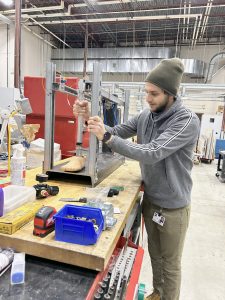
Eduardo, who is currently working on his biomedical engineering thesis at Mexico City’s Universidad Iberoamericana, was particularly attracted to MAKE+ for their state-of-the-art labs and facilities. “The facilities at the Centre for Applied Research and Innovation (CARI) are exceptional,” he states. “Access to this equipment was a key factor in my decision to pursue an internship here.”
The partnership between BCIT’s MAKE+, Barber Prosthetics Clinic, and the War Amps of Canada provided Jedidiah Chiusa and Eduardo Lejtman invaluable experience. Working alongside seasoned researchers on projects such as Using 3D Printing Technology to Enhance Cover Options for Individuals with Lower Extremity Prostheses. This collaboration is a great example of BCIT’s commitment to partnering learners and industry for success, offering hands-on experiences that are crucial for workforce development and the students’ future careers.
About BCIT MAKE+
MAKE+ makes lives better through creative solutions driven by interdisciplinary applied research. By collaborating with local stakeholders, including industry, academic institutions, and students, MAKE+ develops groundbreaking technologies that make a real difference, enhancing lives and elevating British Columbia’s global competitiveness.
As the sole academic applied research group in Canada operating under the ISO 13485 (Medical Devices) Quality Management System, MAKE+ ensures a rigorous product development process. This includes thorough reviews, risk assessments, and meticulous records management, guaranteeing the best outcomes for their partners. This user-focused innovation model leads to safe, effective, and market-ready products that enhance lives worldwide.
The group’s diverse research team excels in evaluation, ergonomic assessments, health, consumer and industrial technology development, automation, and electronics, bringing a wealth of experience and expertise to every project.
